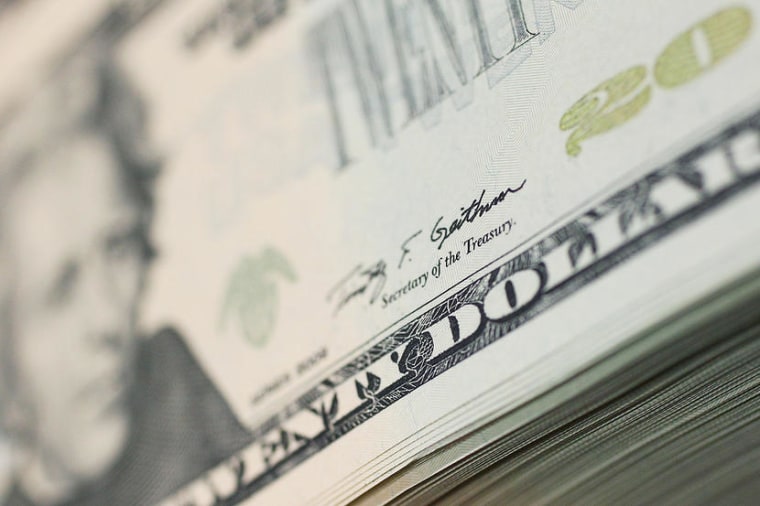On Friday afternoon, a few hours after Americans saw the worst jobs report in 80 years, White House Press Secretary Kayleigh McEnany was asked about Donald Trump's economic plan. She said a variety of words, none of which answered the question. So, the reporter followed up, asking again for the president's plan.
The new press secretary expressed White House support for some kind of "Phase IV" economic aid package, adding, "We encourage the House to maybe reconvene soon. It'd be helpful if Nancy Pelosi was here."
In reality, House Speaker Nancy Pelosi (D-Calif.) was on Capitol Hill at the time, moving forward with plans for an economic aid package. The Wall Street Journal reported overnight:
House Democrats are pushing to complete their next coronavirus-aid proposal this week in the face of deepening economic gloom, but talks with the White House and the Republican-controlled Senate are on ice over disagreements over the pace and content of the next package.
Even by the standards of contemporary D.C., the process surrounding the next round of economic aid is a mess. As the unemployment rate soars, Democrats are largely unified around an ambitious plan that would provide lifelines to struggling Americans and aid to states to prevent even more public-sector layoffs. Republicans, however, appear lost without a map.
On Friday afternoon, for example, after McEnany urged the House to return to session and pass an economic aid bill, Donald Trump said largely the opposite. "We're in no rush," the president said, adding, "I can't say that we're in a rush."
No, of course not. The unemployment rate went from 3.5% to 14.7% in two months, and according to the administration, it will soon top 20%. Why would the White House be in a hurry?
What's more, as congressional Democrats scramble to advance the next aid package, the Washington Post reported over the weekend that the two sides "aren't even talking to each other about what -- if anything -- to do about" the deteriorating economic conditions.
The president, whose mental stability has repeatedly been questioned, added Friday that he doesn't even want to work with Democratic leaders because he considers them "stone cold crazy."
So what's next? There are three things to keep an eye on.
First, Democratic lawmakers are poised to move forward on the latest ambitious economic aid plan, and we're likely to see movement on this front as early as this week. Unlike the packages Congress tackled in March and April, support for this one will probably be far less bipartisan.
Second, if the Democratic-led House acts, this should trigger another round of negotiations, but by some accounts, the White House isn't prepared to participate in such talks until late May or early June.
And third, at some point, Republicans are going to have to figure out what they actually want to see when it comes to policymaking. Most GOP officials oppose state aid, but some prominent Republicans are pushing for it. Trump wants more tax breaks for the wealthy, while some of his allies, including members of his own team, are starting to raise concerns about the deficit.
No one, including Republicans themselves, seems able to say with any confidence what GOP officials would pursue even if there were negotiations over another economic aid package. Complicating matters, the party doesn't seem overly eager to figure it out.
